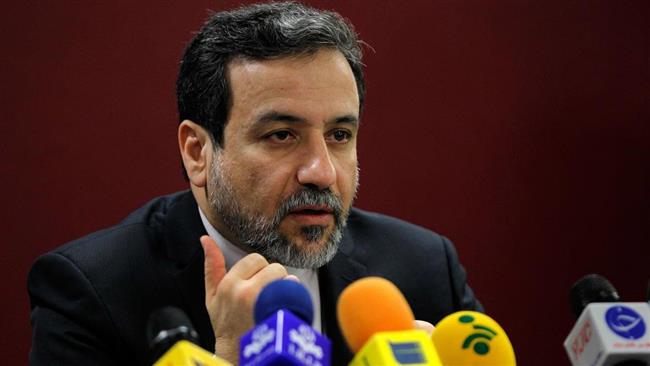Iran’s Deputy Foreign Minister Abbas Araqchi dismissed the remarks made by Mogherini about the JCPOA as mere verbosities, saying the full text of the deal is clear.
He also noted that it is not acceptable that anyone tries to offer one’s own interpretation of a sentence.
Speaking on the sidelines of the meeting of the Joint Commission of the Joint Comprehensive Plan of Action in Vienna on Wednesday, and in reaction to what Mogherini called disclosing a secret on Iran deal, Araqchi told reporters that there is a sentence in the JCPOA that says “the full implementation of the nuclear deal can contribute to regional and global peace and security.”
He went on to say that “the JCPOA has not been fully implemented yet, and it will take place after ten years, it means when all the sanctions have been completely removed. If they could prove that the deal has been a successful example of holding negotiations, then they can claim it has contributed to global peace.”
The Iranian senior diplomat also added that “of course, now we can say the deal has been able to resolve an issue to contribute to peace in a region which is full of tensions.”
Araqchi further stressed that these are verbosities made by some parties. He said “the US President Trump also maneuvered (to have the issue to their advantage) as well. However, the full text of the JCPOA is clear, and it has nothing to do with regional and global issues.”
In her closing statement on Iran nuclear deal during the plenary session of the European Parliament on Tuesday, Federica Mogherini claimed that in the preamble of the (nuclear) agreement (with Iran) there is a reference, half of a sentence, that says this agreement could open the way and could put the basis for different kind of more constructive engagement in the region.
“That sentence – here I may disclose a secret – was introduced on Iran’s request. Because the Iranian leadership at the time which is the same that has been reconfirmed today intended to use the agreement as a way to ask their own population, their own public opinion a mandate to engage with the rest of the world in a political battle, which inside Iran we know very well has happened, and is continuing to happen. And some of you refer to the fact that undermining the full implementation of the nuclear deal also weakens those in Iran political scene that are trying to commit in their own way, which is not ours, towards opening and an engagement with the rest of the world. Weakening or putting into question the JCPOA is a way to strengthen the hardliners in the political scene in Iran. Is it convenient for us? Not for us for sure,” said the EU’s High Representative of the Union for Foreign Affairs and Security Policy.
